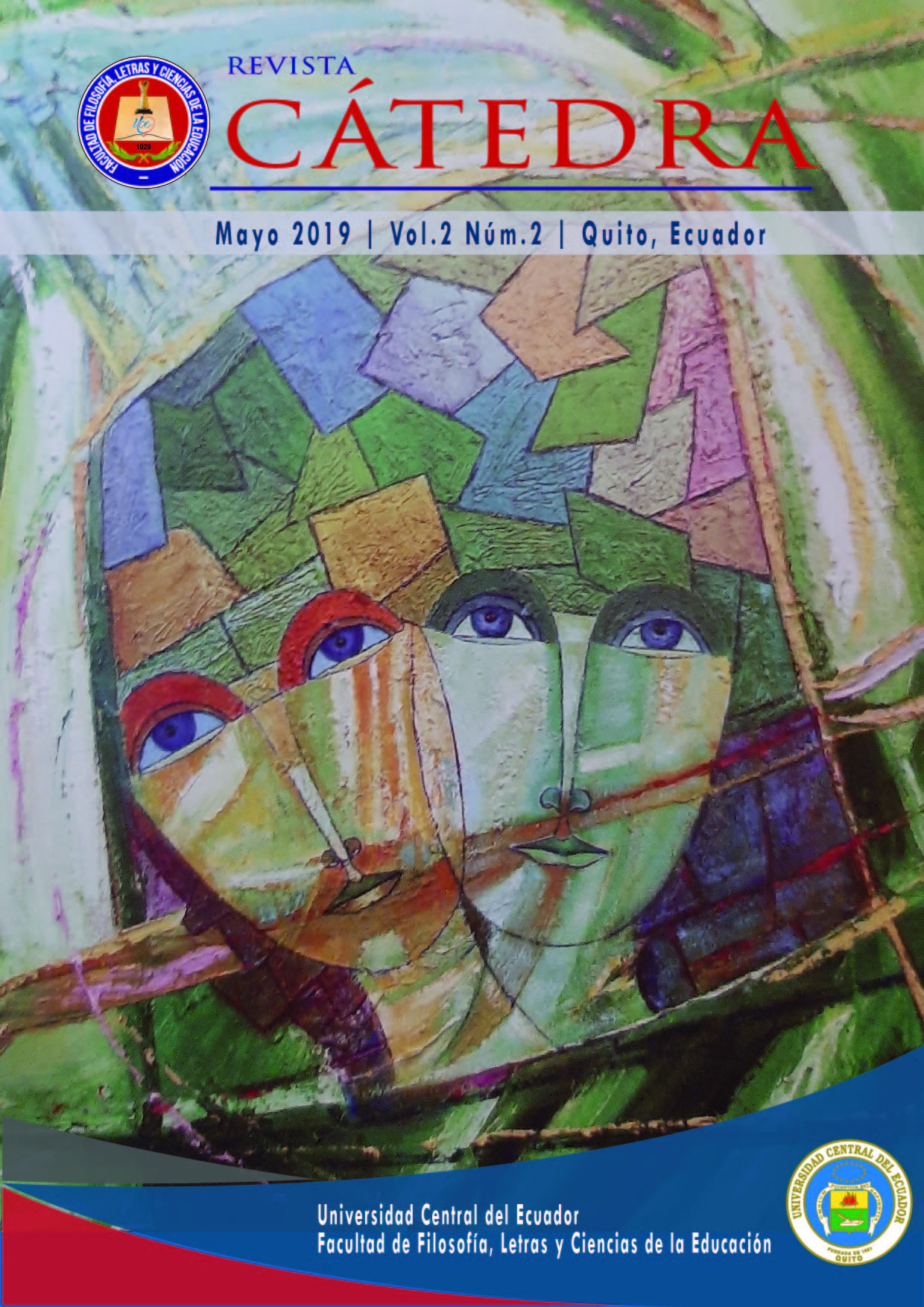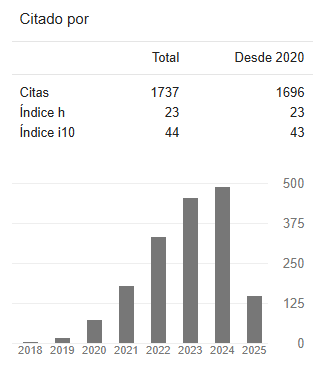The Methodological proposal as an alternative for the integration of knowledge
DOI:
https://doi.org/10.29166/catedra.v2i2.1708Keywords:
Education, integral formation, integrator, methodological proposal, knowledgeAbstract
This article reflects on the methodological proposal as an alternative of qualification, as a strategy for solving problems and as a way of integrating knowledge that enables the integral formation of human beings; in this sense, this document explains the stages of its constitution and analyses its characteristics, contributions and structure. This paper aims to establish a set of guidelines for the structuring of a critical, creative and innovative methodological proposal that responds to the emerging needs of the educational reality and of the society in general. The methodological proposal becomes a pedagogical and didactic strategy that enhances different skills and competences in the human being; it is a reference for professional training that values the research processes, the analytical, critical and reflective perception of the facts, phenomena and educational-contextual situations in which the subjects are immersed. In the daily work of the professor predominates the uncertainty about the processes that should be followed in order for the student to apply the acquired knowledge; hence the content in this manuscript can be an opportunity and an action to be carried out so that the student can practice the acquired theoretical corpus. The manuscript uses the phenomenological-hermeneutic method that allows a direct approach to the object of study and promotes the understanding of the individuals in their context.
Downloads
References
Aguilar-Gordón, F. (2010). Percepción y meta-cognición en la educación: una mirada desde América Latina, en Revista Sophia: Colección de Filosofía de la Educación, N. 8, pp. 147-195, DOI: https://doi.org/10.17163/soph.n8.2010.06, Quito-Ecuador, recuperado de: https://sophia.ups.edu.ec/index.php/sophia/article/view/8.2010.06
Aguilar-Gordón, F. (2019a). Fundamento, evolución, nodos críticos y desafíos de la educación ecuatoriana actual, en Revista Actualidades Investigativas en Educación, Volumen 19, Número 1, pp. 1-31, DOI: 10.15517/aie.v19i1.35715, Costa Rica, recuperado de: https://revistas.ucr.ac.cr/index.php/aie/article/view/35715
Aguilar-Gordón, F. (2019b). Normas Editoriales, en Sophia: Colección de Filosofía de la Educación, N. 26. Universidad Politécnica Salesiana, Abya-Yala, Quito, recuperado de: file:///C:/Users/Floralba/Downloads/157-116-PB.pdf
Bullington, J. y Karlson, G. (1984). Introducción al método fenomenológico de la investigación, en Revista Escandinava de Psicología, N. 25, pp. 51-63
Briones, G. (2013). Metodología y técnicas de Investigación para las Ciencias Sociales. Trillas. Cuarta reimpresión. México D.F. México.
Consejo de Educación Superior (CES) (2017). Reglamento de Régimen Académico, en Gaceta oficial, recuperado de: http://webcache.googleusercontent.com/search?q=cache:heo2TY_phLEJ:www.ces.gob.ec/doc/Reglamentos/2017/Abril/reglamento%2520de%2520regimen%2520academico%2520codificacion.pdf+&cd=1&hl=es&ct=clnk&gl=ec&client=firefox-b-d
Delors, J. (1996) La educación encierra un tesoro. Informe a la UNESCO de la Comisión Internacional sobre la Educación para el Siglo XXI. Santillana, Ediciones UNESCO, Madrid-España, recuperado de: www.unesco.org/education/pdf/DELORS_S.PDF
Finol, T. y Nava, H. (1993). Procesos y productos en la Investigación Documental. Ediluz. Universidad del Zulia. Maracaibo.
Hernández, R. (1991). Metodología de la Investigación. Mc – Graw- Hill. México D.F. México.
Carrasco, J. y Calderero, J. (2009). Aprendo a Investigar en Educación. Ediciones RIALP, S.A., Madrid.
Goetz, J. y LeCompte, M. (1988). Etnografía y diseño cualitativo en investigación educativa. Madrid: Morata.
Giordanino, E. (2011). Las revistas científicas: estructura y normalización. Pautas y evaluación, en Acuerdo de Bibliotecas Universitarias de Córdoba (ABUC), Córdoba, recuperado de: https://www.aacademica.org/egiordanino/29.pdf
Lara, R. (1998). Tecnología: Conceptos, problema y perspectivas. Madrid, España: Editorial Siglo XXXI.
Marchetto, M. (2006). Modelo teórico interpretativo del proceso de investigación desde un enfoque innovador en el IUETAEB. Tesis doctoral. Caracas, Venezuela: USM.
Pérez Juste, R. y otros (1981). Psicología Experimental I. Vol. I, Madrid: UNED.
Reviere, C. y Reviere, O. (2017). ¿Qué es un Diagrama de Gantt? Ed. Calleja, Madrid-España
Torres, J. (2015). ¿Qué es la propuesta metodológica IDEA?, en Iberoamérica Divulga. IBERCIENCIA. Comunidad de Educadores para la Cultura Científica. Universidad Autónoma Chapingo, Texcoco. México, recuperado de: https://www.oei.es/historico/divulgacioncientifica/
Varios Autores (2019). Significado. Diccionario online, recuperado de https://www.significados.com/objetivo-de-investigacion/
Wilcox, K. (1993). La etnografía como una metodología y sus aplicaciones al estudio de la escuela, en Lecturas de Antropología para educadores. Madrid: Trotta.
Downloads
Published
Versions
- 2020-09-03 (2)
- 2019-05-29 (1)









